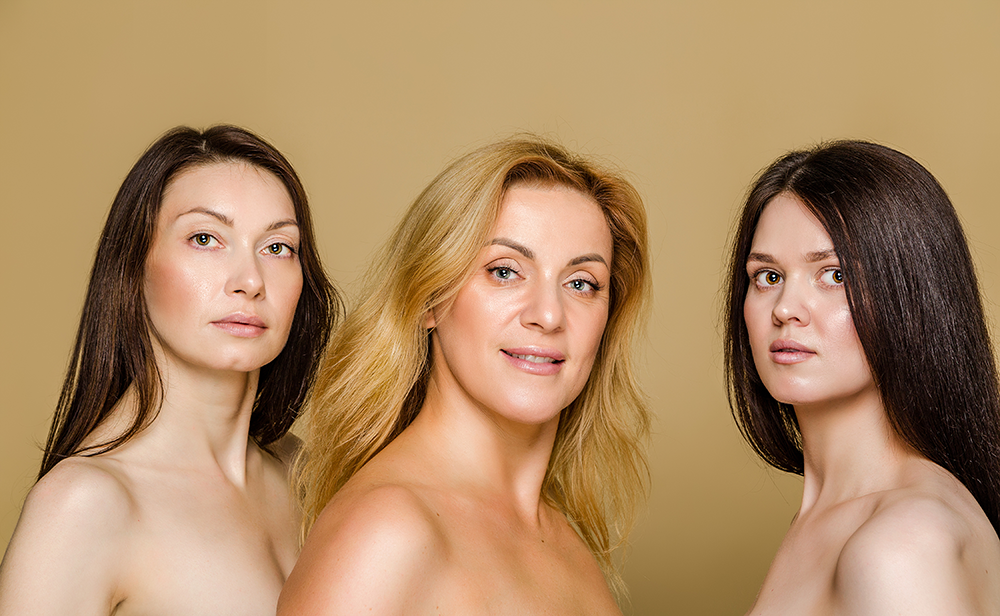
Choosing the right aesthetic treatment for your skin type is essential for achieving the best results while minimizing the risk of side effects. Each skin type has unique characteristics that influence how it responds to different treatments. This guide will help you understand your skin type and identify the most suitable aesthetic treatments to meet your skincare goals.
Understanding Your Skin Type
Before diving into specific treatments, it's crucial to identify your skin type. Here's a quick overview of the most common skin types:
-
Normal Skin: Balanced moisture and oil levels, minimal imperfections, and good overall skin health.
-
Oily Skin: Excess sebum production, leading to shine, enlarged pores, and a tendency toward acne.
-
Dry Skin: Lacks moisture, leading to rough texture, flakiness, and potential sensitivity.
-
Combination Skin: A mix of oily and dry areas, typically with an oily T-zone (forehead, nose, and chin) and dry or normal cheeks.
Sensitive Skin: Easily irritated by products, environmental factors, or treatments, often accompanied by redness, itching, or burning sensations.
Aesthetic Treatments for Each Skin Type
1. Normal Skin:
Normal skin can tolerate a wide range of treatments, making it easier to maintain and enhance its natural glow.
-
Recommended Treatments:
-
Hydrafacial: A gentle, non-invasive treatment that cleanses, exfoliates, and hydrates the skin, perfect for maintaining balance and radiance.
-
Chemical Peels: Mild to moderate peels can help improve skin texture and tone by removing dead skin cells and promoting cell turnover.
-
Laser Treatments: Treatments like IPL (Intense Pulsed Light) can address pigmentation and boost collagen production, keeping the skin youthful and even-toned.
-
2. Oily Skin:
Oily skin benefits from treatments that control excess oil, reduce the appearance of pores, and prevent breakouts.
-
Recommended Treatments:
-
Salicylic Acid Peels: Ideal for deep cleansing pores and reducing oil production, helping to prevent acne.
-
Microdermabrasion: A mechanical exfoliation treatment that removes dead skin cells and unclogs pores, improving texture and reducing oiliness.
-
Laser Genesis: A non-invasive laser treatment that targets oil glands to reduce sebum production and minimize pore size.
-
3. Dry Skin:
Dry skin requires treatments that boost hydration and enhance the skin’s moisture barrier to prevent flakiness and irritation.
-
Recommended Treatments:
-
Hydrating Facials: Treatments that infuse the skin with moisture, using ingredients like hyaluronic acid, are excellent for restoring hydration.
-
Microneedling with Hyaluronic Acid: This treatment creates microchannels in the skin, allowing hyaluronic acid to deeply penetrate and hydrate the skin, promoting a smoother texture.
-
Skin Boosters: Injectable treatments like Restylane Skinboosters deliver deep hydration, improving skin elasticity and texture over time.
-
4. Combination Skin:
Combination skin needs a balanced approach, addressing both oily and dry areas without exacerbating either condition.
-
Recommended Treatments:
-
Custom Facials: Tailored to address the specific needs of different areas of the face, these facials can hydrate dry areas while controlling oil in the T-zone.
-
Fractional Laser Resurfacing: A versatile treatment that can improve texture and tone while addressing both dryness and oiliness.
-
Light Chemical Peels: Mild peels that can help even out the skin tone, control oil production, and provide hydration.
-
5. Sensitive Skin:
Sensitive skin requires gentle treatments that minimize irritation while still providing the desired benefits.
-
Recommended Treatments:
-
Oxygen Facials: These facials deliver oxygen to the skin cells, boosting circulation and hydration without causing irritation, making them perfect for sensitive skin.
-
LED Light Therapy: A non-invasive treatment that uses different wavelengths of light to reduce inflammation, soothe redness, and promote healing.
-
Gentle Enzyme Peels: Enzyme-based exfoliation is a milder alternative to chemical peels, providing a gentle exfoliation without irritating sensitive skin.
Consulting with a Professional
While this guide provides a general overview, it's essential to consult with a qualified aesthetic practitioner who can assess your skin type and recommend the best treatment plan. Professional advice ensures that the chosen treatments are safe, effective, and tailored to your unique needs, leading to optimal results.
Conclusion
Choosing the right aesthetic treatment for your skin type is key to achieving glowing, healthy skin. Whether you have oily, dry, sensitive, or combination skin, there’s a treatment that can address your specific concerns and enhance your natural beauty. Always consult with a skincare professional to create a personalized plan that’s just right for you.
Remember, taking care of your skin is not just about the treatments you choose but also about maintaining a consistent skincare routine that complements those treatments. With the right approach, you can achieve and maintain beautiful skin that looks and feels its best.

